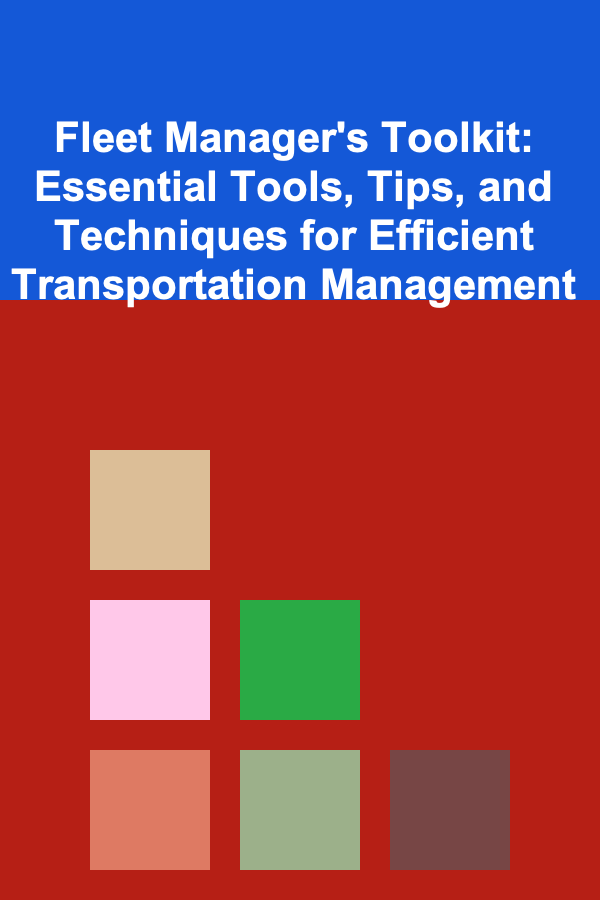
10 Practical Tips for Reducing Debt and Building a Stronger Financial Future
ebook include PDF & Audio bundle (Micro Guide)
$12.99$8.99
Limited Time Offer! Order within the next:

Debt is one of the most common financial challenges people face. Whether it's credit card balances, student loans, or personal loans, the burden of debt can feel overwhelming. However, with the right strategies, you can reduce your debt, regain control over your finances, and build a stronger, more secure financial future.
In this actionable guide, we'll provide 10 practical tips to help you reduce debt effectively and make strides toward long-term financial success. These tips are designed to be straightforward and realistic, ensuring that anyone, regardless of their financial situation, can implement them and start seeing results.
Assess Your Financial Situation Thoroughly
Before you can take any meaningful steps to reduce your debt, it's essential to understand exactly where you stand financially.
What You Should Do:
- List all your debts: Write down every debt you owe, including credit cards, loans, and other liabilities. Note the interest rates and minimum payments for each.
- Create a budget: Determine how much you're earning each month and compare it to your expenses. This will help you identify areas where you can cut back and redirect that money toward paying off debt.
- Check your credit report: Understanding your credit score and the factors affecting it is crucial. A high score can result in better interest rates, while a low score could hinder your financial opportunities.
This first step will give you clarity and set a foundation for the rest of your debt reduction strategy.
Prioritize High-Interest Debts
When you're dealing with multiple debts, it can be tempting to focus on paying off the smallest debts first. While that approach can give you psychological victories, prioritizing high-interest debts is more financially effective in the long run.
Why It Works:
- High-interest debt, such as credit card debt, accrues more interest over time, making it harder to pay off.
- Paying off high-interest debt first reduces the total amount of money you'll pay in interest, freeing up more money for other financial goals.
How to Implement It:
- Debt Avalanche Method: Focus on paying off the debt with the highest interest rate first while making minimum payments on the others. Once the highest-interest debt is paid off, move to the next highest, and so on.
- Debt Snowball Method: Alternatively, you can focus on the smallest debt first, regardless of interest rate, for quick wins that build momentum. While this method can be motivating, it's generally less efficient than the avalanche method.
Negotiate Lower Interest Rates
One often-overlooked strategy is negotiating your interest rates with creditors. Many times, creditors are willing to lower your rate if you ask, especially if you have a good payment history or are facing financial hardship.
What You Should Do:
- Contact your credit card companies and loan providers to ask for a reduction in your interest rates.
- Be polite but firm in explaining your current financial situation and your intention to pay off your debts.
- If you have a strong credit score, mention that you've been offered lower rates by competitors.
Even a small reduction in interest rates can make a significant difference over time.
Consolidate Your Debt
Debt consolidation involves taking out a single loan to pay off multiple debts. This can simplify your financial situation and reduce the number of creditors you deal with. Often, consolidation loans come with lower interest rates, which means you'll pay less in the long run.
Types of Debt Consolidation:
- Personal Loans: A personal loan with a lower interest rate than your existing debts can help consolidate your credit card debt, medical bills, and other loans.
- Balance Transfer Credit Cards: Some credit cards offer 0% APR on balance transfers for a limited time. This can allow you to consolidate debt at no interest for several months, but be mindful of the transfer fees and what happens after the promotional period ends.
- Home Equity Loans or Lines of Credit: If you own a home, you might be able to consolidate debt using home equity, which often offers lower interest rates. However, this comes with the risk of losing your home if you don't keep up with payments.
Debt consolidation can be a powerful tool, but it's important to ensure you don't rack up new debt while consolidating existing balances.
Create an Emergency Fund
One of the best ways to avoid accumulating new debt is to have an emergency fund. Without a buffer for unexpected expenses, you might be tempted to rely on credit cards or loans in times of crisis.
How to Start:
- Set a goal for your emergency fund: Aim for at least three to six months' worth of living expenses.
- Start small: Even saving a few hundred dollars initially can provide peace of mind and prevent you from going further into debt.
- Automate savings: Set up automatic transfers to a high-yield savings account each payday to ensure you consistently contribute to your emergency fund.
Having this financial cushion will reduce the temptation to use credit cards when life throws unexpected challenges your way.
Cut Unnecessary Expenses
If you want to pay off debt faster, you need to free up as much money as possible. Cutting unnecessary expenses can give you more funds to put toward reducing your debt.
Where to Look:
- Subscriptions and memberships: Cancel services or subscriptions you rarely use, such as streaming platforms, gym memberships, or magazine subscriptions.
- Dining out and takeout: Prepare meals at home instead of eating out, which can quickly add up.
- Shopping habits: Consider pausing discretionary spending on clothes, gadgets, and entertainment until your debt is under control.
While these may seem like small savings, over time, they can accumulate into a significant amount of money that can be used to pay off debt.
Consider a Side Income
Sometimes, reducing debt requires finding additional sources of income. A side hustle can provide extra cash that goes directly toward paying off your debt, helping you achieve financial freedom faster.
Potential Side Income Ideas:
- Freelancing: Use your skills in writing, design, coding, or marketing to take on freelance work.
- Gig Economy Jobs: Drive for a ride-sharing service, deliver food, or take on tasks through platforms like TaskRabbit.
- Sell Unused Items: Declutter your home and sell things you no longer need. This can generate some quick cash to pay down your debt.
Any additional income you earn can be applied directly to reducing your debt balance.
Automate Debt Repayments
One of the most effective ways to ensure you consistently pay off your debt is to automate the repayment process. This way, you won't have to rely on willpower or memory to make payments, which can prevent missed payments and late fees.
Benefits:
- Avoid missed payments: Automating payments ensures that you never forget a due date.
- Consistency: Regular, automated payments help you stay on track and create momentum.
- Time savings: Automating the process reduces the time you spend managing your debt each month.
Set up automatic transfers to pay off your debt monthly, and be sure to review your progress regularly to make adjustments if needed.
Avoid Adding New Debt
While focusing on paying off existing debt, it's crucial not to add new debt to the mix. If you're using credit cards to pay for things while you're trying to reduce debt, you may be undermining your efforts.
Strategies to Avoid New Debt:
- Leave your credit cards at home: When you go out, leave your credit cards behind to avoid impulse purchases.
- Use cash or debit: Use cash or a debit card for daily expenses to avoid running up new charges.
- Create a budget for non-essential spending: Allocate a set amount each month for non-essential spending, and stick to it.
By being mindful of your spending, you can avoid accumulating additional debt while you work toward paying off existing balances.
Seek Professional Help if Necessary
If you're feeling overwhelmed by your debt, don't hesitate to seek professional help. A financial advisor, credit counselor, or debt relief expert can guide you through the process of reducing your debt and improving your financial situation.
What Professionals Can Help With:
- Debt management plans: These plans can help consolidate your debts into one monthly payment, often at a lower interest rate.
- Debt settlement: If your debt is substantial, a professional may help negotiate with creditors to settle for a lower amount.
- Financial planning: A certified financial planner can create a comprehensive strategy to pay down your debt while building wealth.
Seeking help is not a sign of weakness---it's a proactive step to regaining control over your financial future.
Conclusion
Reducing debt and building a stronger financial future is a process that requires patience, discipline, and consistent effort. By assessing your financial situation, prioritizing high-interest debts, cutting unnecessary expenses, and seeking professional guidance when necessary, you can gradually eliminate your debt and achieve greater financial stability. The key is to stay committed, stay disciplined, and take actionable steps toward your long-term financial goals.

Budget-Friendly Pet Care: Practical Tips for Saving on Food, Toys, and More
Read More
Fleet Manager's Toolkit: Essential Tools, Tips, and Techniques for Efficient Transportation Management
Read More
How to Create a Checklist for Crafting Engaging Email Subject Lines
Read MoreHow to Create a Checklist for Tracking Business Expenses
Read More
How to Create a Job Interview Checklist for Preparation
Read More
How to Get Started with Rowing Machine Workouts
Read MoreOther Products

Budget-Friendly Pet Care: Practical Tips for Saving on Food, Toys, and More
Read More
Fleet Manager's Toolkit: Essential Tools, Tips, and Techniques for Efficient Transportation Management
Read More
How to Create a Checklist for Crafting Engaging Email Subject Lines
Read MoreHow to Create a Checklist for Tracking Business Expenses
Read More
How to Create a Job Interview Checklist for Preparation
Read More